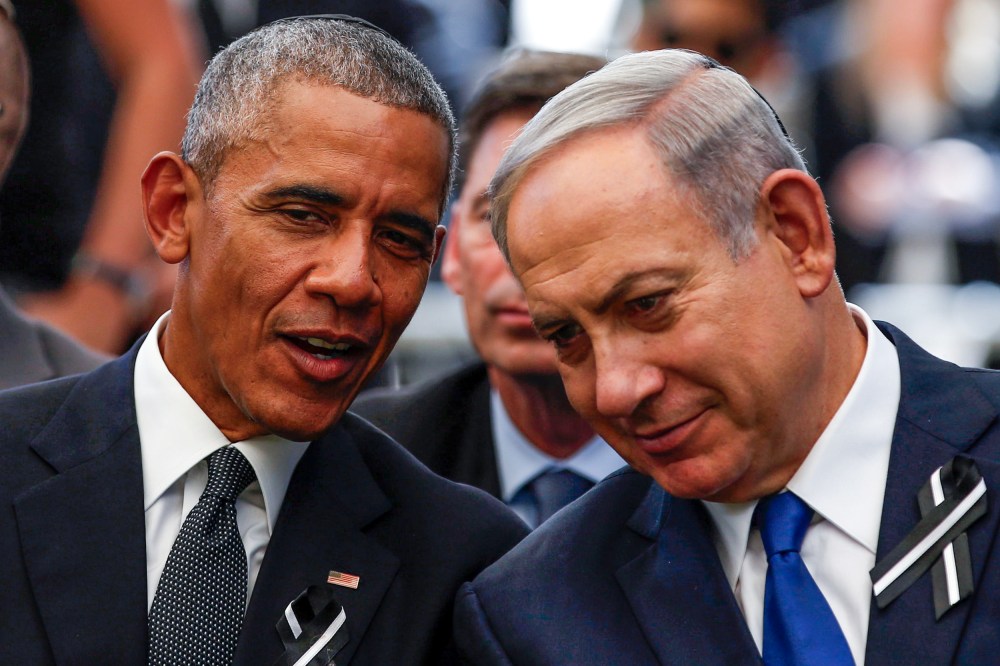The ongoing conflict between Israel and Hamas is not the first time Israeli Prime Minister Benjamin Netanyahu has put a U.S. president in a precarious policy and political position.
Back in 2015, then-President Barack Obama and the leaders of the nations known as the P5+1 – China, Britain, France, Russia and Germany – were using every tool in the national security tool box to constrain Iran’s pursuit of nuclear weapons, including negotiating a deal to formally constrain that pursuit. At the same time, Netanyahu was doing the unthinkable.
While leading a nation dependent on U.S. military support, Netanyahu ran a multipronged, sustained public campaign against a American president’s agenda. The move was a strategic disaster, failing to stop the deal, sidelining Israel diplomatically and injecting partisanship into what, until then, had been roundly bipartisan U.S. backing for its ally. The Democratic Party has not been unified on support for Israel since.
The negotiations around the Joint Comprehensive Plan of Action, aka the Iran Nuclear Deal, were a pivotal moment in U.S.-Israeli relations. Netanyahu vociferously opposed bringing Iran into the diplomatic mainstream, and in March of 2015 he coordinated with then-House Speaker John Boehner, a Republican, to deliver a joint address to Congress, an invitation traditionally extended via the White House. Not only did Netanyahu snub President Barack Obama, but also Israeli Ambassador Ron Dormer coordinated directly with Republicans to denounce a signature Obama policy and create division in Democratic ranks.
Netanyahu’s address to Congress combined sentiments like “I know you stand with Israel” with assertions that voting for the deal will “spark a nuclear arms race in the most dangerous part of the planet.” Rep. John Yarmuth, a Jewish Democrat from Kentucky, described the speech as “straight out of the Dick Cheney playbook. I resented the condescending tone that [Bibi] used, which basically indicated he didn’t think anybody in Congress or the country understood the threat.”
The pressure campaign didn’t affect the Obama administration’s resolve. The president announced the terms of the deal in July 2015, and in September, Congress voted to implement the agreement. Obama called the move “a victory for diplomacy, for American national security, and for the safety and security of the world.”
Netanyahu declared it “a stunning, historic mistake.” He would claim that Iran wasn’t honoring the agreement right up until then-President Donald Trump withdrew from the deal in 2018, at which point Netanyahu claimed credit for moving the U.S. to his will.
The reverberations from Netanyahu’s speech have echoed through U.S.-Israeli relations in the years since. His hardline rhetoric put Israel in the precarious situation of being further sidelined by the global community. Criticism of him came swiftly, not only from Obama’s party — House Democratic Leader Nancy Pelosi labeled Netanyahu’s behavior “an insult” to America — but from within Israel, as well.
“I am also not thrilled about Obama’s policies,” said Yair Lapid, Netanyahu’s former finance minister. “But Netanhyahu crossed a line that caused the White House to stop listening to Israel. In the last year [of international negotiations] we weren’t even in the arena … and the door to the White House was closed to us.”












